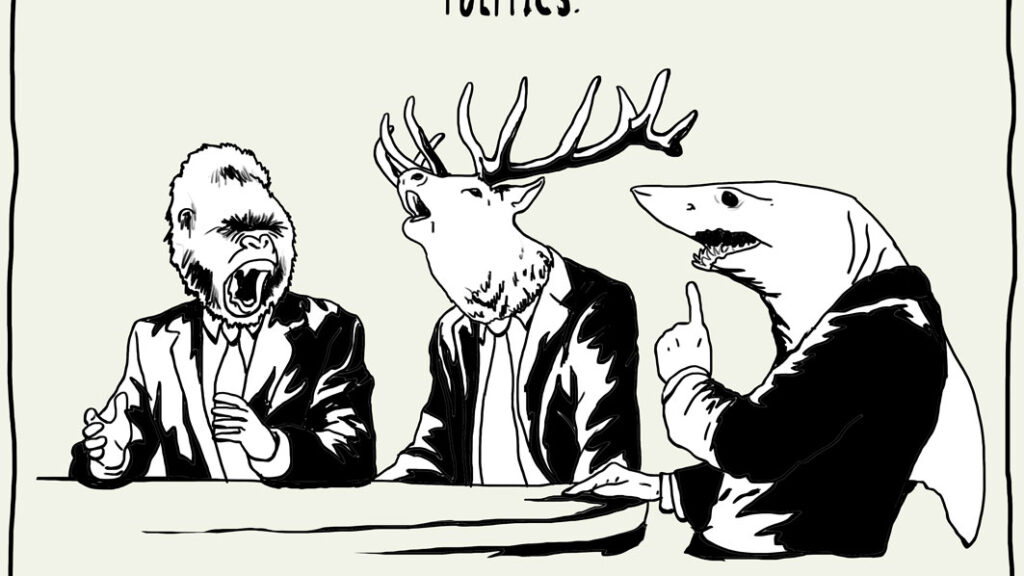
February 14, 2022 • Brooke Siem
Publication Bias & the Chemical Imbalance Theory
This is the last installment of Debunking the Chemical Imbalance Theory of Depression.
The previous installments can be found here: Part I | Part II | Part III | Part IV
With social media at the forefront of 21st-century communication, there is a tendency for non-experts to argue with one another via evidence-based research. Having an opinion is dangerous when a single Tweet can get you fired, but making a statement that begins, “Studies show that…” cushions whatever belief follows.

But research is rigged from the start. It’s an open secret in the academic community, but little known by the rest of us. There are predatory journals that profit off of bad science or outright fiction, but because the journals and websites look official, people confuse them for legitimate science. There’s also the fact that Big Pharma funds its own trials (that are used as the basis for FDA approval) which creates an obvious conflict of interest. And don’t forget about medical ghostwriting, where pharmaceutical reps actually write the content of published articles but slap a (paid) doctor’s name on it. Then there’s the replication crisis, in which the results of research can’t be replicated, which indicates that the results are likely false.
Of course, there’s also all the legitimate, ethical research that does exist but has to survive within the chaos. Can you tell the difference? Are you sure about that? And if you can spot the good from the bad, what about all the research that was never published in the first place? Is a lie by omission still a lie?
This question is at the heart of publication bias, arguably the most troubling aspect of the current state of drug research. Publication bias is what happens when the outcome of a study determines whether or not it gets published or distributed. For example, a researcher could conduct 10 studies claiming that a new drug lowers blood pressure. Let’s say that in four of the trials, blood pressure levels didn’t change. In four other trials, blood pressure levels actually increased. But in two trials, blood pressure levels decreased.
Though 8 of 10 trials did not have the intended outcome, there is nothing in the bylaws that state that the researchers have to publicize that information. Instead, they can focus their publication efforts on the two trials that did show a positive reduction in blood pressure and use those results to get their drug approved by the FDA—even though their own research showed that the drug flopped 80% of the time.
This graveyard of failed or abandoned studies means that doctors don’t have complete information for the drugs they’re prescribing. This is a big reason why I don’t like it when people lump all doctors in a box when it comes to prescribed harm. They can do their research and think that they are acting in an ethical way, but they are being misled just like the rest of us.
How bad is it? Let’s take a look.
In 2015, researcher Erick. H Turner used the Freedom of Information Act to gather all the trials on antidepressants that were approved by the FDA over a 15-year period. Keep in mind that this isn’t all the trials ever conducted, just the ones used to get marketing authorization. Any unsubmitted trials, whether failed or abandoned, are known only to the researchers. Only the results of trials submitted to the FDA are available through the Freedom of Information Act.
There were 74 trials submitted to the FDA; 38 showed that the antidepressants had a positive effect (compared to a placebo and/or a competitor), and 36 showed either no effect or a negative effect. Essentially, it’s a coin toss.
Turner then cross-referenced these studies with peer-reviewed journals to see which ones were actually published for public consumption. Of the 74 original trials, 37 of the positive studies were published whereas only 3 of the negative trials were published.
Rather, from the FDA’s perspective, these drugs had some sort of positive impact 51% of the time. From the public’s perspective, if we’re basing this off of research doctors and patients can access, these drugs are effective 92.5% of the time.
In the words of Ben Goldacre, Senior Clinical Research Fellow at the Centre for Evidence-Based Medicine at the University of Oxford, “If I tossed a coin a hundred times, and I’m allowed to withhold from you the answers half the time, then I can convince you that I have a coin with two heads.”
And that’s why pharmaceutical companies to legally allowed to advertise that antidepressants like Pristiq are “proven to treat depression” and “thought to work by affecting the levels of two chemicals in the brain, serotonin and norepinephrine.” It doesn’t matter that we know it’s not the whole story, because manufacturers aren’t forced to report all their trials.
Unfortunately, there’s no real answer to any of this. Doing your own research is fabulous, but know that the research is incomplete. At some point, you have to reach inside yourself and calibrate your own inner compass.

Need a little giggle? Order one of my Fuckit Buckets™.
Look, we know that life is a special sort of disaster right now. Your closet is your office, the kids are still at home, and still your mother-law is calling you fat again. Let this little charm be a reminder that sometimes you have to chuck it in the Fuckit Bucket™ and move on!
After 15 years of depression and antidepressants, my mission is to help people find hope in the name of healing. My memoir on the subject, MAY CAUSE SIDE EFFECTS, publishes on May 10, 2022. Pre-order it on Barnes & Nobles, Amazon, or wherever books are sold. For the most up-to-date announcements, subscribe to my newsletter HAPPINESS IS A SKILL.
Coming September 6, 2022
May Cause Side Effects
Brooke’s memoir is now available for preorder wherever books are sold.
This is a heart-rending and tender memoir that will start conversations we urgently need to have. It’s moving and important.
Johann Hari, author of New York Times bestseller Chasing the Scream and international bestseller Lost Connections: Uncovering the Real Causes of Depression—and the Unexpected Solutions
More articles from the blog
see all articles
October 28, 2022


